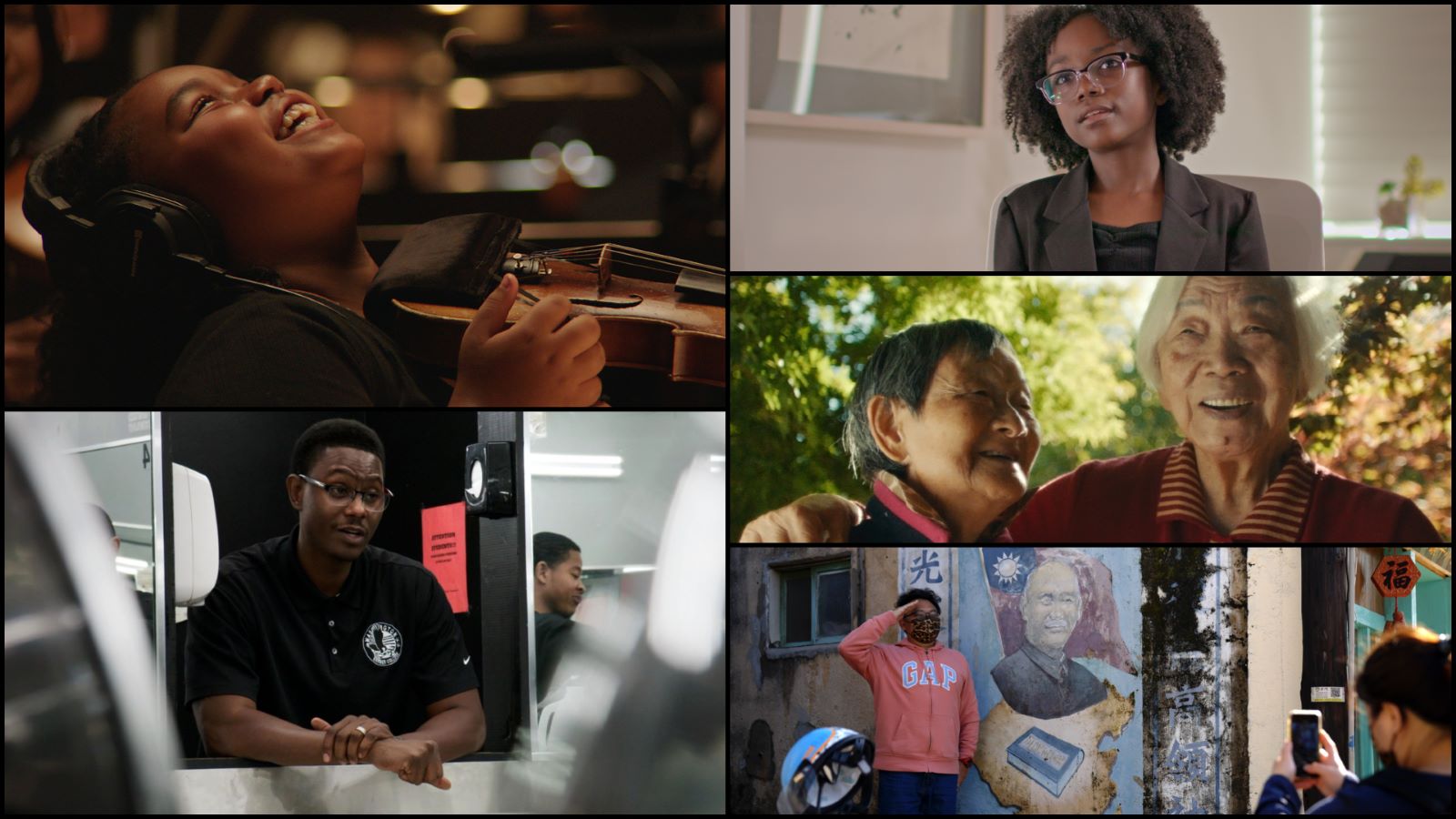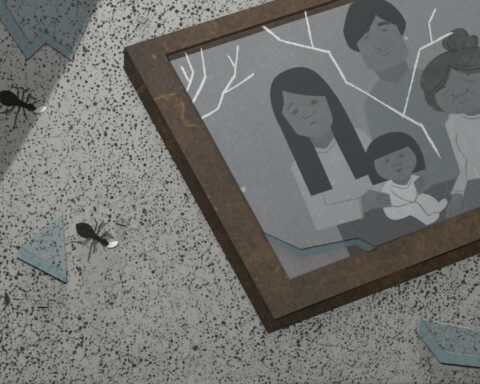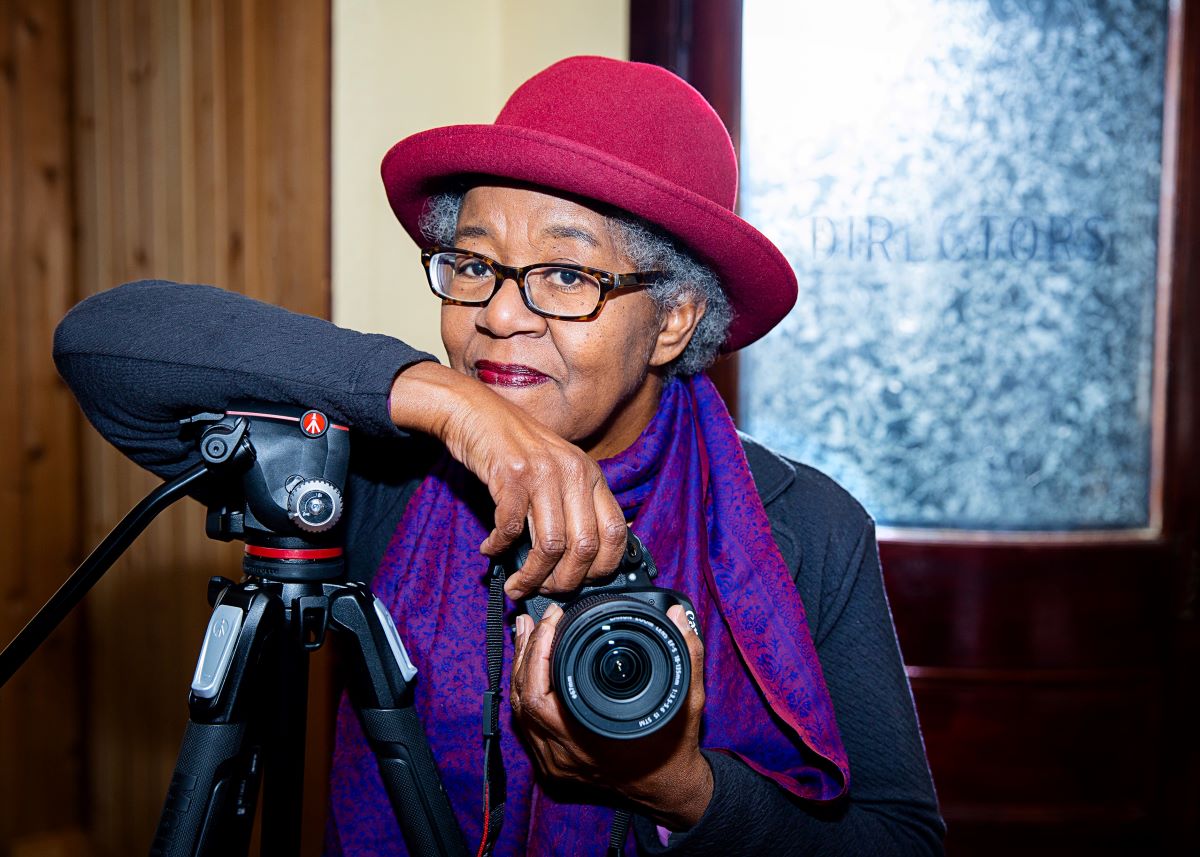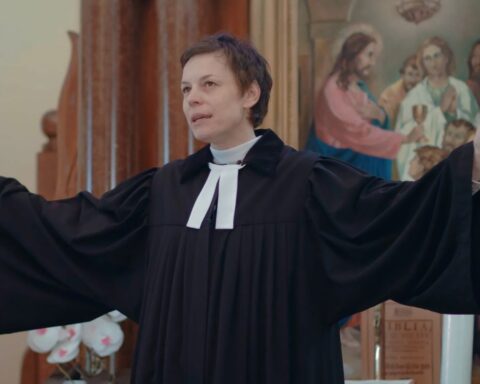People love to gripe about the Oscar nominations, but from the documentary side of things, this year’s choices are pretty great. The doc branch again delivers with its five nominated films on the shorts front. The group also offers a fair snapshot of the industry and the growing place for shorts, particularly docs, on the streamers—although perennial winner Netflix surprisingly isn’t in the mix. The quintet of nominees also boasts two documentary heavyweights vying for their first wins on their first nominations, while a defending champion could easily walk away with Oscar number two—and make for a memorable night for the Canadians on the doc side if Nisha Pahuja’s To Kill a Tiger scoops the feature prize.
Here are the five nominees for Best Documentary Short Film vying for this year’s Oscar. The films are open in theatres beginning this weekend. Don’t miss them: these five films show the art form at its best.
Nǎi Nai & Wài Pó
Director Sean Wang had a very good week when the Oscar nominations were announced. Just days after the young director scored his first Oscar nomination for this short doc, his first dramatic feature Didi won an audience award at Sundance. One sees a genuine talent behind the camera in Nǎi Nai & Wài Pó. While the film might be the “smallest” of the Oscar-nominated short docs in terms of scope and story, it’s an intimate work that exudes love from every frame.
The film offers a portrait of Wang’s maternal grandmother and paternal grandmother, who became great friends when their children married. Following the passing of their husbands, however, the grandmas became like sisters. The film tells how they moved in together, taking care of one another during the last years of their lives.
Wang observes the daily habits that keep Nǎi Nai and Wài Pó sharp and fit. They dance, they laugh, and they fart constantly to test each other’s sense of smell. Wang captures their young at heart demeanour as they get silly for the camera, but the doc also keeps things serious as the women discuss the challenges of the COVID-19 pandemic—they haven’t been to the supermarket in years—and confront the reality that they have little time left. Nǎi Nai & Wài Pó is a buoyant family portrait. (Streams on Disney+.)
The ABCs of Book Banning
If there’s one veteran who should have all the other nominees shaking in their boots, though, it’s The ABCs of Book Banning director Sheila Nevins. The Grande Dame of Documentary makes her directorial debut after producing nearly 500 docs in a career that included the heyday of HBO Docs and bringing the mojo to MTV Documentary Films, which is represented in the feature category with The Eternal Memory. During these years, Nevins has, somewhat amassed a whopping 32 Primetime Emmys (the most for an individual), 35 News & Documentary Emmys, and 42 Peabody Awards while 26 HBO docs won Oscars—and yet, ludicrously, never been nominated for a documentary herself until this year
The ABCs of Book Banning offers exactly the kind of doc that should draw upon Nevins’ extensive experience not only in documentary, but also children’s programming. The film tackles the hot-button topic of book banning through voices largely omitted from the discourse: those of children deprived of great stories that simply seek to expand their minds and horizons.
ABCs takes audiences through the different layers of censorship, which range from restrictions to challenges to outright banning. But even school kids recognize that it’s total hogwash that American politicians overzealously target age-appropriate books like And Tango Makes Three, which features two male penguins raising a chick, or The Hips on the Drag Queen Go Swish, Swish, Swish, which might inspire a hearty “yaaaaasssss” from kids who enjoy a progressive update of The Wheels on the Bus, unlike the stuffy politicians who think that drag storytime will inspire a generation of kids to dress eccentrically.
Nevins gets wonderfully insightful perspectives from students who simply want to read and feed their curiosity. Compelling footage from a town hall, meanwhile offers fiery testimony from 100-year-old activist Grace Linn who speaks passionately about her local school board’s book banning. She notes that her husband died in World War II defending democracy while the Nazis burned books. She chastises the board for depriving kids of the right for which her husband, and many others, died defending. The film ultimately uses the topical issue of book banning to argue that the heart of what traditionally makes America great—it’s likeness to an open book—is at stake in a polarized nation. It’s bold, tough, essential—and likely to be banned in classrooms across the USA. (Streams on Paramount+.)
Island in Between
Another veteran enjoying her first nomination is producer Jean Tsien, whose work as a producer and editor with an expansive list of credits that includes COVID doc 76 Days and Sundance prizewinner Free Chol Soo Lee. She joins director S. Leo Chiang to deliver a look at the relationship between Taiwan and mainland China. Chiang filters the story through a personal lens and reflects upon what it’s like to come home to Kinmen Island, Taiwan and see China anew after living abroad in the USA. The grass isn’t necessarily greener.
Island in Between draws from the personal mode of documentary and offers a mix of video diary and non-fiction essay. The film considers the small island that served as the front line between China and Taipei during the Chinese civil war and continues to offer a symbolic border. Chiang observes elements of the military complex that hide in plain sight, including defensive barriers by the shore to protect Kinmen from the nation separated by a mere 10 kilometres of water. Chiang extends his query to the might of the Chinese state, while frequently observing the waves that ripple to and from this small island. The personal touch offers an accessible entry point to the complicated history of a geopolitical hotspot. (Streams via New York Times Op-Docs.)
The Barber of Little Rock
A great character fuels the excellent New Yorker doc The Barber of Little Rock from directors John Hoffman and Christine Turner. The man in question is Arlo Washington, the titular barber who uplifts his community by establishing the People’s Trust. His program inspires others to follow his path as an entrepreneur. The trust offers loans and grants for businesses with which people in Little Rock can keep funds flowing in the community.
Moreover, Washington’s mission particularly addresses the systemic barriers that prevent Black Americans like himself from accessing the necessary funds through a bank. The doc smartly uses Washington’s story to pivot to the larger issue of “banking while Black” and the many false promises of prosperity, of being able to pursue the American dream, that were given with the abolishment of slavery. Contemporary banking simply offers discrimination in another form.
This compelling character-driven film observes the widening rich-poor gap in America—a “rich-poor chasm,” as Washington calls Little Rock. It provocatively asks how a country can be so fundamentally broken when individuals must assume the responsibility to stimulate financial aid in their own communities. But the story of The Barber of Little Rock also finds the best in America, which isn’t easy to see these days. It offers a portrait of community building in top form. All the while, the doc incisively keeps the larger issues in its peripheral vision as the story focuses on the individuals transformed by Washington’s endeavour. The balance of micro and macro inquiry here is most impressive. (Streams via The New Yorker.)
The Last Repair Shop
It may be a strong year for the short docs, but the standout in a total runaway is The Last Repair Shop. The film marks the latest effort from native Nova Scotian Ben Proudfoot, who won the Oscar two years ago for The Queen of Basketball and seemingly hasn’t taken a break since then. The prolific director reunites with Kris Bowers, his co-director for the Oscar-nominated A Concerto Is a Conversation, and The Last Repair Shop is a product of note-perfect synergy developed over years. This film is arguably among the strongest short doc I’ve ever seen.
Proudfoot marks himself a keen student of Errol Morris with the direct-address interviews that form the spine of the film. It’s a beautifully effective strategy as four employees at a Los Angeles musical repair shop share their craft as the remaining destination for mending instruments for local schools. The characters speak directly from the heart as they look into the camera and describe the care that goes into repairing instruments. Lensed beautifully by cinematographer David Feeney-Mosier with an eye for golden hues that let the instruments and musicians radiate, the film is effectively heart-warming. These are stories of artisans who are passionate about their craft. They detail how any minor crack can leave a string instrument fuzzy and how any sticky valve can leave a woodwind flat.
What really makes the workers’ stories so poignant, though, are the ways in which they identify with the students who will use the instruments that are repaired freely for schools in the L.A. County. Dana Atkinson in the strings department tells viewers about how music helped him find the right tune for self-acceptance and how he now makes beautiful music with his husband while raising a family. Manager and piano tuner Steve Bagmanyan (who tuned pianos on which Bowers mastered his craft) shares memories of a beloved guitar left behind and a father who was killed in Azerbaijan. Bagmanyan credits his ability to make the instruments sound like new as key to his survival.
The heart of the film, though, is the emotional account from Paty Moreno, who takes The Last Repair Shop to another level with the story of how she came to be in charge of the brass instruments. The lone woman in the shop, Moreno knows in her bones how a song can save a life.
She recalls honing her skills and taking a leap of faith with a complicated and involved audition for the job. As the only woman in the room, and a Mexican immigrant, no less, she doubted her chances. Instead of anticipating a phone call, she worried about her family’s future at a time when she couldn’t afford the $20 rental fee for her kid’s instrument because she had to prioritise putting food on the table. There’s a moment in the film where Moreno breaks, and it genuinely hits home how much a seemingly simple service affords a world of good for kids and families who just need a hand.
As the beautiful score by Katya Richardson and Kris Bowers movingly bridges the stories, The Last Repair Shop pays tribute to the hands that elevate generations of musicians. The directors pepper the film with interviews with young pupils who share their passion for music, while students past and present contribute to the film’s triumphant finale. In a very strong field, The Last Repair Shop hits the highest of notes. (Streams on Disney+.)














